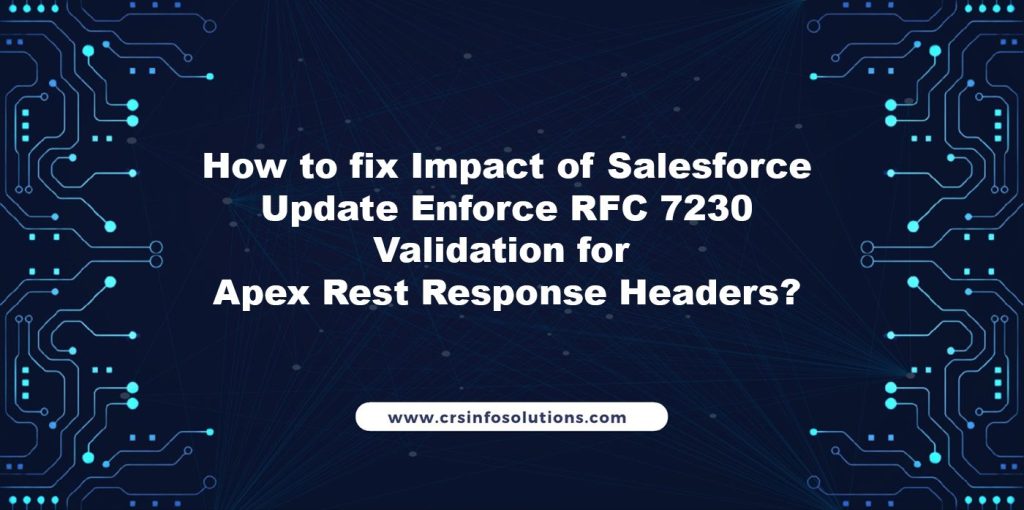How to fix Impact of Salesforce Update- Enforce RFC 7230 Validation for Apex Rest Response Headers?

Table of contents
The Salesforce Spring ’24 release introduces an important update regarding the Apex REST API, specifically enforcing RFC 7230 validation. This enhancement aims to ensure that the Apex REST API responses are well-structured and conform to a set of standards known as RFC 7230.
What is RFC 7230?
RFC 7230 is a standard that defines the format and transmission of messages between HTTP/1.1 clients and servers. Enforcing RFC 7230 validation in Salesforce means that the header names in REST response headers defined in Apex will be validated based on RFC 7230 standards. This implementation is expected to improve the overall performance and reliability of Apex REST API responses by making them more uniform, easy to understand, and compatible with other RESTful applications.
The update enhances the robustness of the API responses, ensuring they are properly titled and organized, thus facilitating smoother interaction with other services and applications. This can be likened to a traffic officer ensuring everything is in order for efficient communication.
For Developers
For developers, this means paying closer attention to the structure of the headers in their Apex REST API responses to ensure compliance with RFC 7230 standards. It’s an important step for Salesforce in enhancing the consistency and reliability of its API responses, contributing to better integration capabilities and overall system performance.
In the context of Salesforce and web development, “Enforcing RFC 7230” typically refers to adhering to the standards defined in RFC 7230, which is the foundational specification for HTTP/1.1. This specification includes rules for constructing and interpreting HTTP messages.
Message Syntax and Routing:
RFC 7230 outlines the syntax for constructing HTTP messages, including requests and responses, headers, and URIs. Salesforce ensuring compliance would mean that all HTTP communication adheres to these standards to prevent errors in data exchange and integration with external systems.
Handling of Headers and Connections:
This includes correct interpretation and handling of HTTP headers, managing persistent connections, and supporting transfer encodings. Salesforce would enforce these aspects to optimize network communication with its services.
Security and Compatibility:
Adhering to RFC 7230 also helps in enhancing security measures, such as specifying how to manage sensitive headers or ensuring data integrity during transfer. It also ensures that Salesforce services remain compatible with other web services and clients that comply with HTTP standards.
For detailed information on this update, you can refer to the Salesforce Help and Training Community or the developer updates for Salesforce Spring ’24.

